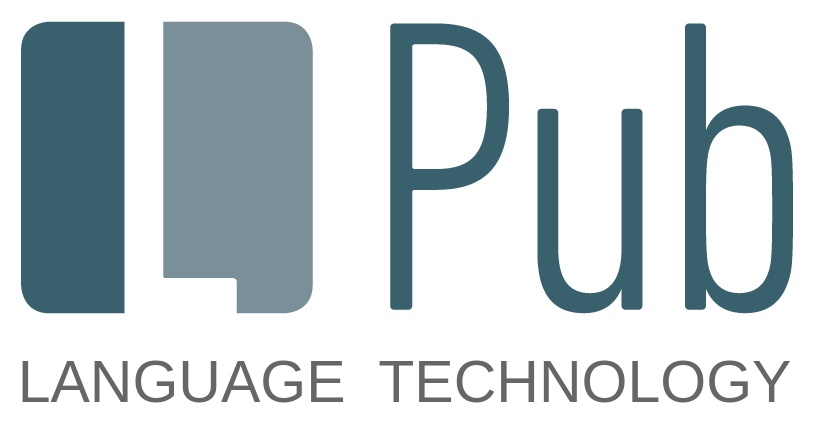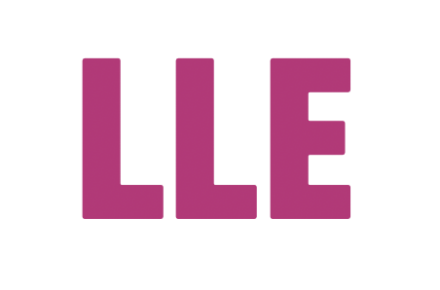Stuck for words again? Find out how learning foreign words works in the brain and how to spice up your vocabulary learning strategy.
Every language learner knows the situation: that one word, sometimes five, ten or twenty words, that you have learned and revised about twenty or thirty times already – only to find yourself tongue-tied during the next conversation in your target language, trying in vain to recall what that silly word was. What is going wrong here? Is there a way to avoid this? Maybe it’s time to review your vocabulary learning strategy.
Let’s take a closer look at how your brain learns words in a foreign language. When we talk about “memory”, we should be more accurate. We are actually referring to three “memories”*: the ultra short-term memory, the short-term memory and the long-term memory. All three of them play a major, yet quite differing role in the vocabulary learning process.
Positive associations help
The ultra short-term memory behaves like a sieve that receives and filters every stimulus – in our case the words in the foreign language. Relevant, memorable items are separated from irrelevant items. That means a word is only transferred on to short-term memory if you as a learner give it enough of your attention. Attention includes dealing with the word on various sensory channels.
Do not simply read the word “Brotscheibe” (German for “slice of bread”), but imagine what a “Brotscheibe” might look like, smell like, what it feels like in your hand, and what it tastes like. Maybe your grandmother used to bake bread herself when you were young? Maybe on Sunday mornings you used to wake up to the scent of freshly baked bread wafting in from the kitchen? Link these positive memories to the word in front of you! Many learners also find it helpful to create mnemonics* for themselves.
Regardless of how you do it, intensively dealing with a word activates both cerebral hemispheres, which, in turn, makes it a lot easier for you to recall the word the next time you need it.
Giving a word attention also means to include subvocalization*: say the word to yourself in your head three to four times. The faster you manage to do these iterations, the more intensively your brain has to deal with the word – and the higher the likelihood of the word being passed on to short-term memory.
 No isolated words, please!
No isolated words, please!
Your short-term memory works a bit like a computer’s data management system. In order to keep a word from landing in the trash bin, it has to be filed into the right “folder” and linked to other files. What does that mean exactly? You should never learn words in isolation. You will very quickly forget isolated words, as the brain does not see any relevance in them. When do you actually use a word in a foreign language entirely detached from other words in that language? Actually, you hardly ever do.
That’s why it makes sense to group words that are somehow linked, for example, by subject area. Let’s return to “Brotscheibe”, which might fit into the folder “baked goods” or, even better, into the (sub)folder “bread”, where you might also file words like “Schwarzbrot”, “Sauerteigbrot” or “Kruste”.
Plus, there is a small trick to outsmart your short-term memory. Instead of learning only learn single words, learn chunks of words, like collocations*, phrases or sentences. Imagine you want to learn the word “Frage” (question). Why not learn the collocation “eine Frage stellen” (to ask a question)? This way, you kill two birds with one stone: not only will you learn the word “Frage”, but also the verb “stellen”, which can have many different meanings, so it makes much more sense to learn it in connection with how it is actually used.
Linking is key
And how does a word manage to finally make it into your long-term memory? Again, cross-linking is key! Do not file the word in only one subject area, but link it to other “folders” as well. “Brotscheibe”, for instance, does not only fit in the “baked goods” folder, but also in the folder “Scheiben”, in conjunction with “Wurfscheibe” (discus) and “Fensterscheibe” (pane). Remember, the more associations and mental links you attach to a word, the more intensively you deal with it mentally – and the more likely it is that you will not forget the word.
But associations are not sufficient. If you want to be able to actively use a word even one year after you learned it, you have to retrieve the word on a regular basis, preferably in your own writing or speaking in the foreign language. Otherwise, you may forget the word entirely, or find it much harder to actually use it.
Which method is best for me?
Let’s look a bit more closely at how our brain works. The most important aspect to consider is probably this: our brain is incredibly lazy. Lazy but cunning at the same time – because it will do anything it can to save time and resources.
These tactics our brains use are actually very helpful in our daily life. Imagine if we remembered every single detail from the small chat with the cashier two months ago: that would be sensory overload. In order to learn a foreign language, however, you will have to learn to outsmart your brain, i.e. to train it to actually remember the seemingly unimportant details.
There is not one single learning method that works for every language learner. Some learners have to know how to spell a word in order to be able to memorize it. Others have to say it out loud or write it down several times. Others find it helpful to write post-its that they stick to the walls of their room, so they review the words every time they walk from their bed to the bathroom.

One method that several studies regard as highly effective is learning vocabulary with index cards in a box. The idea is to create a box with five compartments. You start by writing the words you want to learn on small cards and placing them into the first compartment. If you recall a word, the card with this word wanders into the next compartment.
You can use this method the “old-fashioned” way using an actual box, or you can refer to vocabulary learning software such as Phase 6, which use this method digitally. Some other popular digital trainers are offered by Language Course and PONS. A vocabulary trainer for German and Georgisch is vobot, which uses full sentences to practice with, so you will always learn words in an authentic context. Regardless of the details, the important thing is that the method suits you. If you feel uncertain about which method is best, try out different ones and find out which method helps you the most.
Context and patience
Independent of the actual learning method, there are three important tips that you should consider when learning vocabulary:
- Context is king. We have already talked about the “folders”. But also simply reading longer texts in the foreign language will help you immensely to memorize words. And the additional bonus: you get the relevant context that helps you to recall a word automatically, without any additional effort from your side.
- Do not exaggerate. It will get you nowhere to revise one hundred words a day. Try and choose a realistic scale, like ten words a day, that you will be able to stick to not only in the beginning, but also in a few weeks’ time when the first wave of enthusiasm has started to ebb away a little. It also helps to know about your individual daily performance curve. Most people are most retentive before noon. Do you feel the same way? Or are you at your best in the evening hours? Try and find out and adapt your learning routine accordingly.
- Do not just learn any word. Think about the subject areas that interest you most. For a start, focus on learning these words in your target language first. It also makes sense to differentiate between words or phrases you should be able to use actively and ones that are interesting but more nice-to-haves, i.e. should not take up too much of your energy and time.
- Be patient and persistent. It is as pointless to drill a hundred words a day as it is to give it everything you got for one week, only to subsequently indulge in a one-month break from vocabulary learning. Since small breaks can actually help, it makes sense to choose small intervals of intense learning that you slowly extend over time.
Enjoy learning!
Some special vocabulary I used in this article (in the order they appear)
short-term memory: up to around 7 things you remember for up to a minute after the initial stimulus
long-term memory: things you will “never” forget, of course experts have differing views on this, but once something has made it this far, your brain has in fact physically changed (and cannot be changed back)
mnemonics: any number of learning techniques or “tricks” that help information really stick
subvocalization: saying words in your head as you read them
collocations: words that go together like “submit” and “application”, often a verb and noun combination
Stay up to date on language learning offers by L-Pub. Sign up for our newsletter!
Learn about our vocabulary trainer apps for German & Georgisch: vobot
Learn more about our reading & learning apps: StoryPlanet
Photos by Dino Reichmuth and Alejandro Escamilla via Unsplash.com and leungchopan via shutterstock.com

 No isolated words, please!
No isolated words, please!